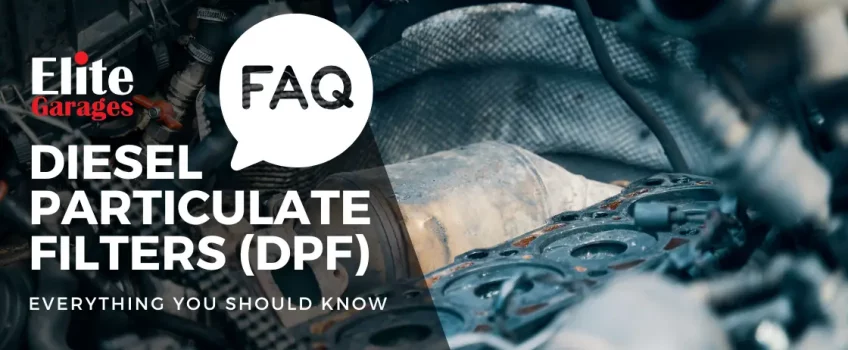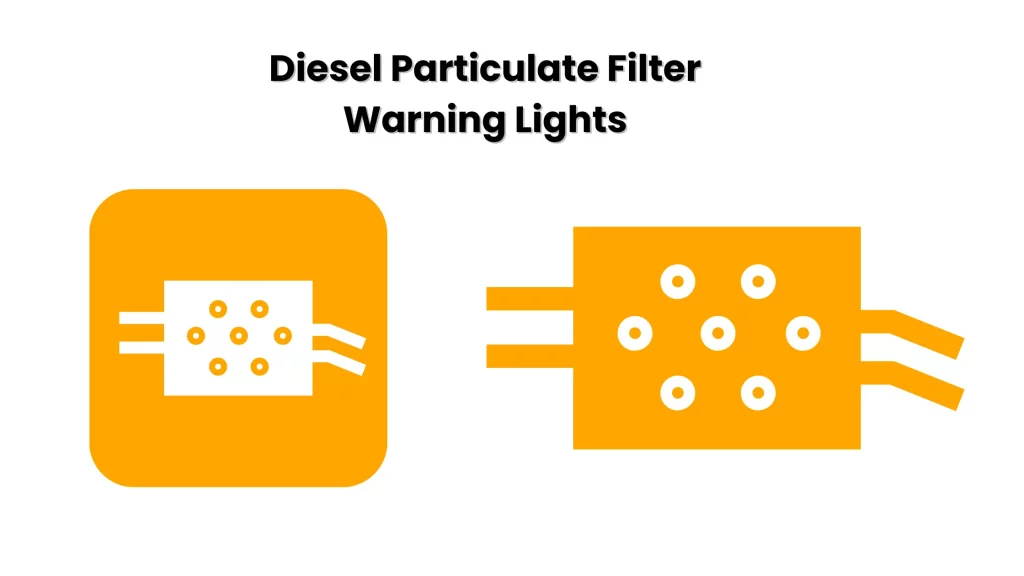
What Is A Diesel Particulate Filter (DPF)?
If you have a diesel vehicle, it more than likely has a diesel particulate filter (DPF) but many people don’t know exactly what it is and how to maintain it properly. In this article, we explain exactly what a diesel particular filter is, how they work, why you need them and to take care of it like a pro.
For almost 20 years, diesel particulate filters have been installed in diesel cars and poor maintenance or if it is tampered with could lead to serious and expensive damage to your vehicle. Knowing what a diesel particulate filter is and why you should look after it is essential to boost vehicle performance, reduce emissions and save you money in the long term.
What Is A Diesel Particulate Filter?
A diesel particulate filter (DPF) is a filtering mechanism that traps and keeps diesel soot (also known as soot traps) to help reduce emissions from vehicles. Since they have a limited capacity, this trapped soot must be emptied or “burned off” every now and then in order for the DPF to regenerate.
As a result of this regeneration process, diesel vehicles with a particulate filter can easily be restored. It cleanly burns away the extra soot deposited in the filter which reduces harmful exhaust emissions while helping to avoid the black smoke that poorly maintained diesel cars emit when accelerating.
How Do I Know If My Car Has A DPF?
If your car was built after 2009 it will be fitted with a Diesel Particular Filter. In fact, all diesel cars since September 2009 must have a DPF in the exhaust to prevent soot (soot traps) from being released into the atmosphere. While this forms part of the Euro 5 standard for diesel cars, there are some earlier models that also have a DPF.
Another way to see if your car has a DPF is by looking at the manufacturer’s stickers either inside the driver’s door or in somewhere under the bonnet. These labels have useful information, including the manufacturer’s helpline contact details, tyre pressure, fuel type and it often also indicates whether the car has a Diesel Particulate Filter.
Does My DPF Need Cleaning?
If your Diesel Particulate Filter is starting to get clogged up, or a fault develops in the system, you may notice an orange warning light on the dashboard. Depending on the vehicle, these DPF warning lights often look like an exhaust with dots in the middle. However, they may vary by manufacturer so it’s best to consult your vehicle owner’s handbook for additional information.
 What Happens If A DPF Is Blocked?
What Happens If A DPF Is Blocked?
Without a fully functioning Diesel Particulate Filter, a diesel car produces significantly more harmful emissions. While diesel vehicles produce less CO2 compared to petrol-powered cars, they do produce high levels of NOx (Nitrogen Oxides). This is what makes diesel-powered cars not quite as environmentally friendly as you’d expect.
If soot clogs the DPF, the engine may not start and you could be left with a bill for cleaning or even replacing it which can be costly. As such, it should come as no surprise that customers often ask DPF questions, especially if they are considering buying a diesel car.
How Do I Unblock A Diesel Particulate Filter?
When the DPF warning light flashes, it’s time to take your car for an extended fast drive. This will help the DPF to burn off soot before it becomes permanently clogged up. Older diesel cars that only do short and slow trips often get blocked DPFs require cleaning or replacing, depending on the amount of soot in the filter.
Can I Clean A Diesel Particulate Filter Myself?
As mentioned above, driving a DPF clean is one option and should be the only DIY fix, in addition to using a special DPF cleaning liquid. Using a DPF cleaner lowers the combustion temperature of the soot inside the DPF which makes it easier to burn. It also contains a high level of active cleaning agents to flush the system properly.
Doing it at home is not recommended and you should always take it to an expert like Elite Garages. These types of companies have the necessary tools and expertise to remove, clean or replace a Diesel Particulate Filter with little to no risk.
When it comes to cleaning a Diesel Particulate Filter, there are two types of regeneration, i.e. active and passive. Here is a brief breakdown of each:
What Is Passive Regeneration?
Passive regeneration only happens when you drive a car at speed on a long stretch of motorway. This increases the exhaust’s temperature which cleanly burns off any excess soot in the filter. You should regularly drive your diesel car for at least 30 – 50 minutes at a sustained speed either on the motorway or lengthy A-roads.
However, as a result, a layer of ash is left behind which will eventually harden and damage the DPF. Even if soot can be removed using DPF cleaning, the DPF may need to be replaced, cleaned, or removed if too much ash has built up that even regeneration can’t solve.
What Is Active Regeneration?
Active regeneration involves a process where extra fuel is sent to the exhaust to raise its temperature to burn off excess soot inside the Diesel Particulate Filter. It is particularly useful for people who don’t drive long distances as these cars will struggle to remove excess soot without active regeneration.
Since the vehicle isn’t in use for long enough journeys to complete a regeneration cycle, the Electronic Control Unit (ECU) will automatically recognise the situation and implement active regeneration accordingly. If a journey is too short, the regeneration can’t be completed so the warning light will continue to appear since the DPF is still partially blocked.
If this is the case, driving for 10 – 20 minutes at speeds greater than 40mph, you could complete a regeneration cycle and clear the warning light.
How Do I Know If My Diesel Particulate Filter Is Regenerating?
When the DPF is regenerating, you may notice a few changes in how your vehicle is operating. Some of the tell-tale symptoms include the following:
- A change in engine sound
- Cooling fans are running
- Higher fuel consumption
- A hot and unusual smell from under the car
- Engine idle speed is also higher than normal
- Deactivation of Stop/Start functionality in some models
How Long Should A Diesel Particulate Filter Last?
A DPF can last up to around 100,000 miles if maintained properly. After the car has exceeded that mileage, you could be looking at paying a large amount of money for a replacement – so always properly check MoT and service records when buying a used car. Otherwise, you could end up forking out for unexpected repairs on high-mileage diesel vehicles.
A DPF can last up to 100,000 miles if you maintain it properly. If a car has done more than 100,000 miles, chances are you may need to replace your Diesel Particulate Filter which is why it’s. vital to carefully read through MoT and service records when buying a used car.
Can I Remove The Diesel Particulate Filter?
Under no circumstances should you remove a DPF! Remember, if a car was designed with a DPF, it is illegal to drive such a car without one fitted. The main reason is that without a Diesel Particulate Filter, your car will not meet its specified emissions standards. If you are caught driving without a DPF, you could get fined up to £1,000 for cars and £2,500 for vans. It can also invalidate your car insurance so it’s best to get your DPF checked, cleaned or replaced when necessary.
Is A DPF Part Of My MOT?
Yes, as of February 2014, checking the presence of a Diesel Particulate Filter became part of the annual MoT. All cars that are supposed to have a DPF fitted get inspected and a missing DPF will result in an immediate MOT failure.
At Elite Garages, DPF cleaning is available at select service stations. It includes a full inspection, diagnosis and flush by trained technicians. Do the right thing and make sure your DPF is working as it should so you can pass the MOT and reduce your carbon footprint.
If you think it needs attention, contact Elite Garages today and find out where to get your Diesel Particulate Filter cleaned or replaces. We recommend a Diesel Particulate Filter cleaning every 6 to 9 months to avoid an expensive DPF repair or DPF replacement bill down the road.
About Us
Opening Times
Saturday : 8:30–4:00
Sunday : closed
More Information
Contact UsCustomer Information Pack
Check MOT Due Date
Free MOT reminder
Careers
Legal Information
Recent Posts
- The Most Common Car Questions UK Drivers Ask, And What They Usually Mean
- Why Short Winter Journeys Cause So Many Common Car Problems
- Why Car Problems Happen More Often in January (And What Drivers Miss)
- Why the Right Car Service Garage Matters: Advice Drivers Trusted Most in 2025
- Christmas Guide to Winter Car Checks: From All of Us at Elite Garages


